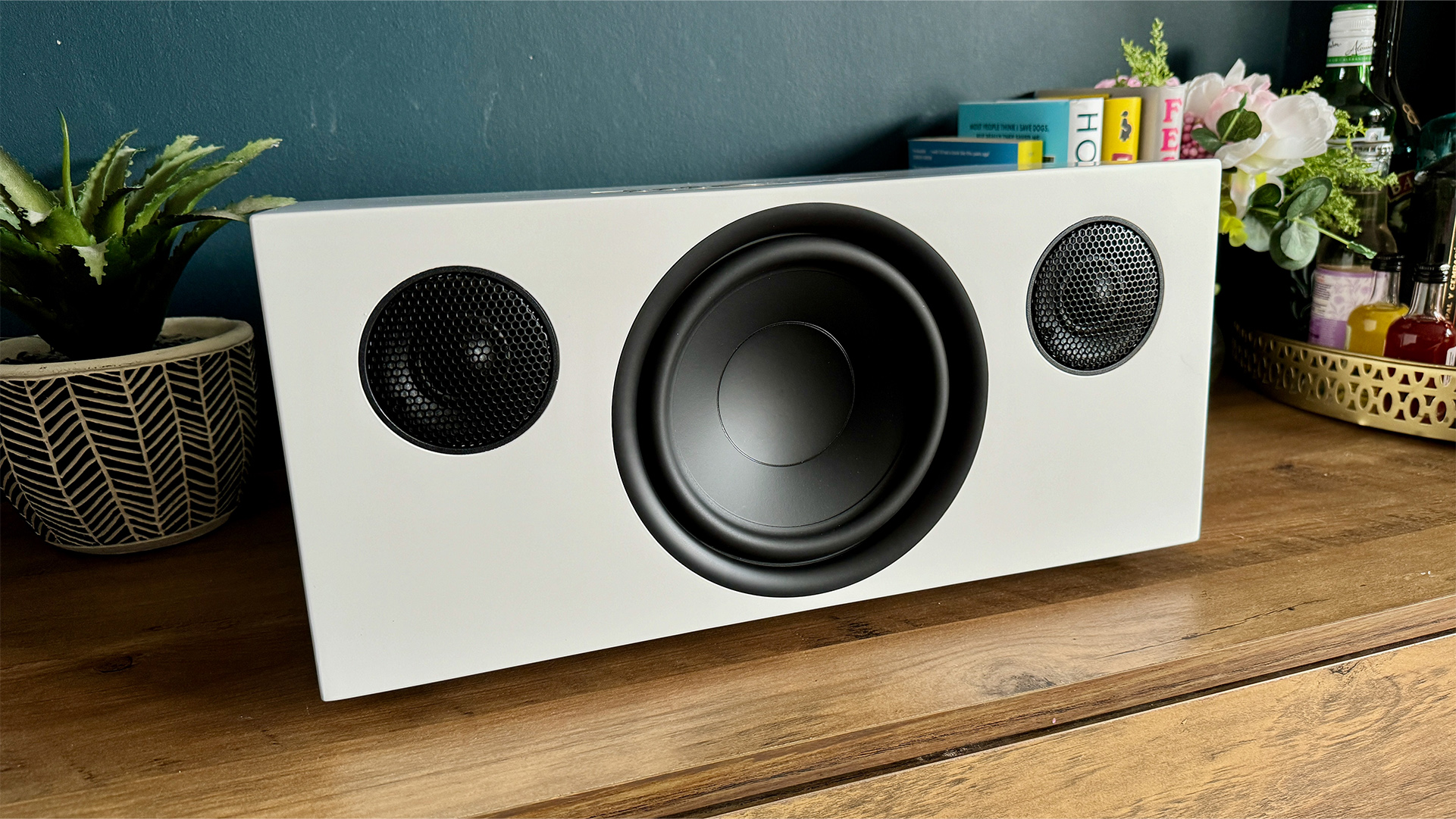Sonos Beam Gen 2 vs Beam Gen 1: should you upgrade?
We pit the current Dolby Atmos-toting, eARC-wielding Sonos soundbar against its predecessor
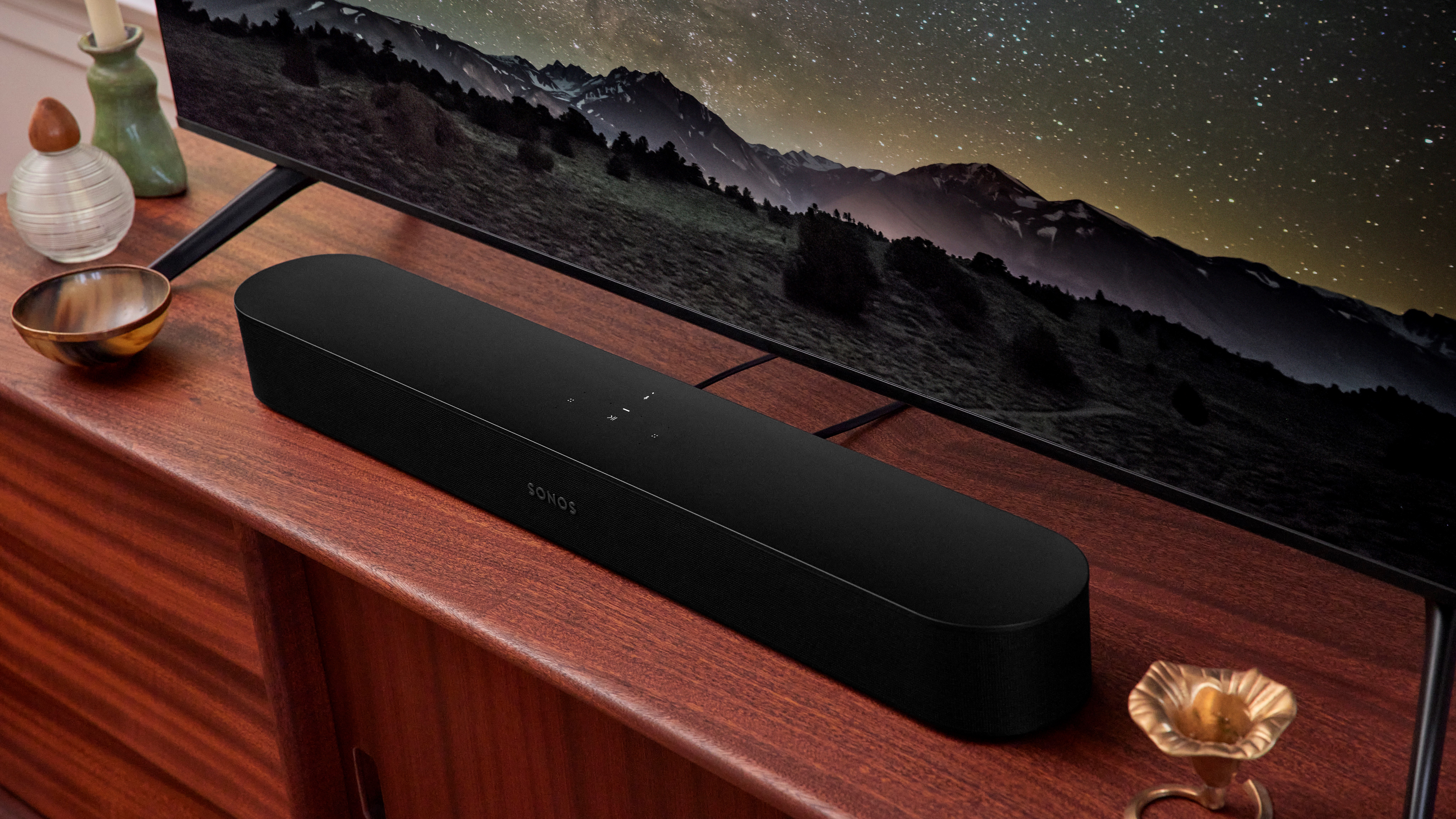
Our love of the original Sonos Beam has been far from a secret. It was a worthy winner in its What Hi-Fi? Awards category three years in a row, impressing with the quality of its sound, diminutive design and aggressive price tag.
Given its tried and tested prowess, it’s no wonder that the official announcement in 2021 of its successor and direct replacement, the Sonos Beam Gen 2, caused quite a stir. Despite its seemingly identical package, the Gen 2 stuffs an impressive collection of new tricks up its sleeve, most notably support for Dolby Atmos, as well as eARC connectivity and enhanced processing power.
We've had the pleasure of extensively testing and living with the Sonos Beam Gen 2 since its arrival three years ago and have compared its sound, design and features with the original Beam to help you decide whether it is worth upgrading to.
With all that in mind, let’s see how the OG Beam stacks up against its fresher-faced, but somewhat familiar-looking, usurper.
Sonos Beam Gen 2 vs Beam Gen 1: price
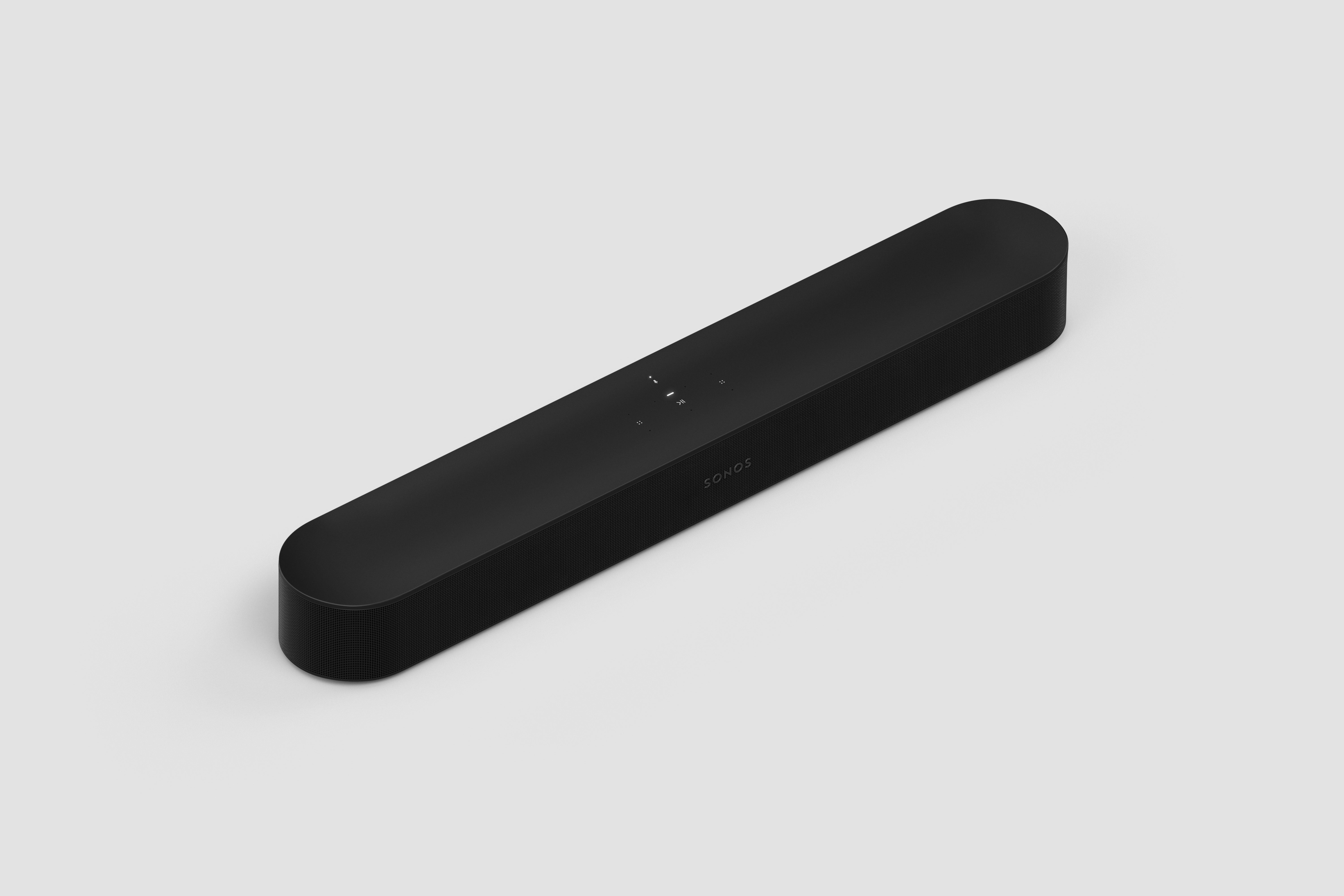
At its launch in 2018, the Sonos Beam was £399 / $399 / AU$599. It was discontinued when the Gen 2 came along and is pretty hard to find nowadays save for on resale sites, especially at a decent price.
The new Sonos Beam Gen 2 had a noticeably more expensive launch price of £449 / $449 / AU$699, though it isn't uncommon to find it around £50 / $50 / AU$100 cheaper now that it's been knocking around for a few years.
For extra context, the model-down, entry-level Sonos Ray costs £279 / $279 / AU$399.
Obviously, we know which of these three models your wallet is going to prefer, but given the extra features that the Gen 2 has, it might be more than a little sensible to fork out the extra cash for some all-important future-proofing. Especially as the cost difference is in line with Sonos' 2021 price hikes across its range.
**Winner: Sonos Beam Gen 1**
Sonos Beam Gen 2 vs Beam Gen 1: design
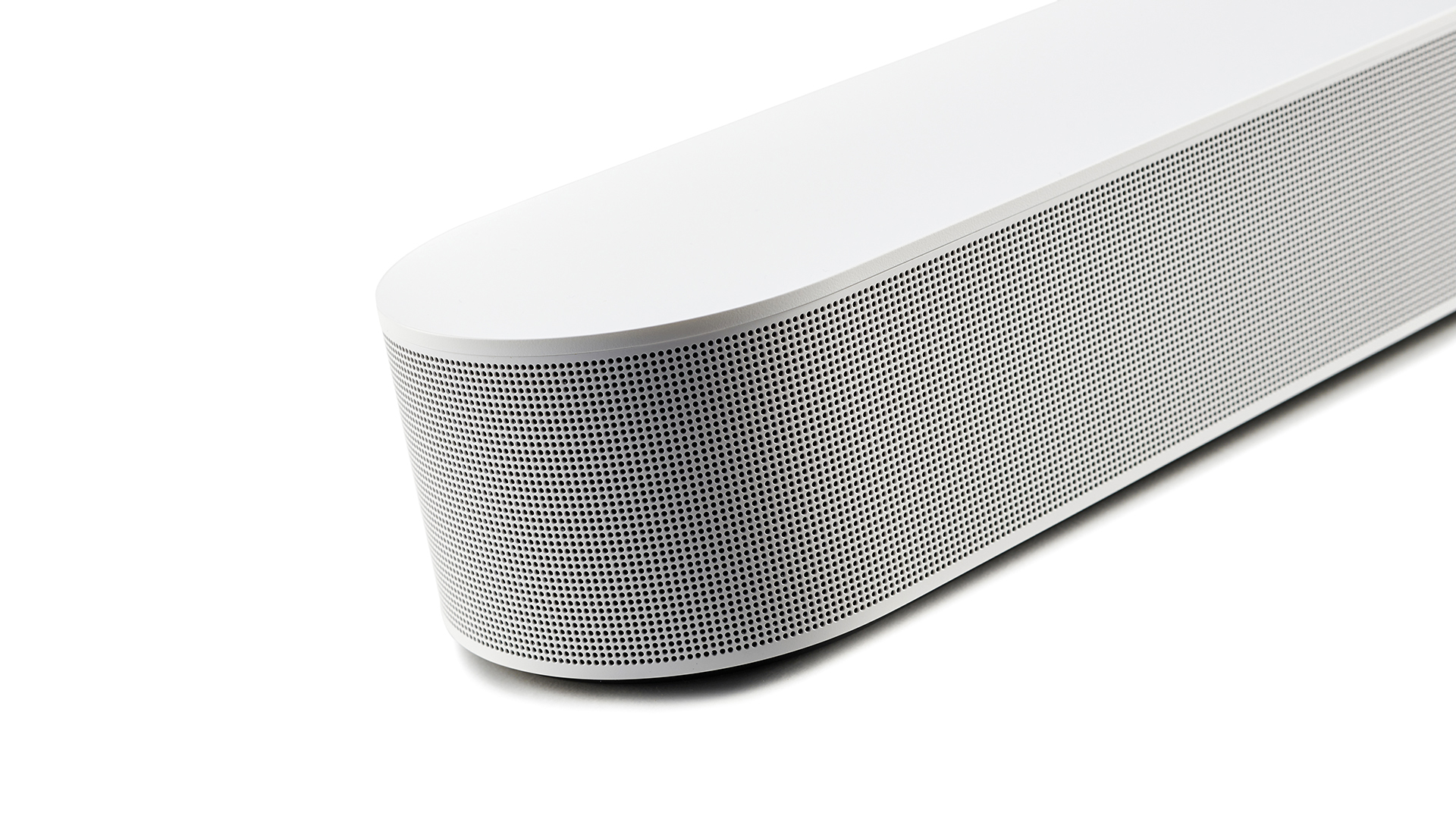
At first glance, the Beam Gen 2 and original Beam appear to be identical. Featuring the same 6.9 x 65 x 10cm dimensions, 2.8kg weight, and capacitive controls built into the top, you’d be hard-pressed to spot a difference.
Peer a little closer, however, and you’ll notice that there is one significant cosmetic change: while the Beam features a fabric speaker grille, the Beam Gen 2 apes the more premium Arc with a polycarbonate grille with precise perforations.
Which one you prefer will be down to personal preference; the fabric grille has a soft, modern look that feels a little more premium out of the box. In contrast, the newer polycarbonate grille is sleek, easier to clean, and less susceptible to wear over time.
As with the original Beam, the Beam Gen 2 is also available in black and white, but you also get appropriately coloured power and HDMI cables to match this time.
**Winner: Sonos Beam Gen 2**
Sonos Beam Gen 2 vs Beam Gen 1: features
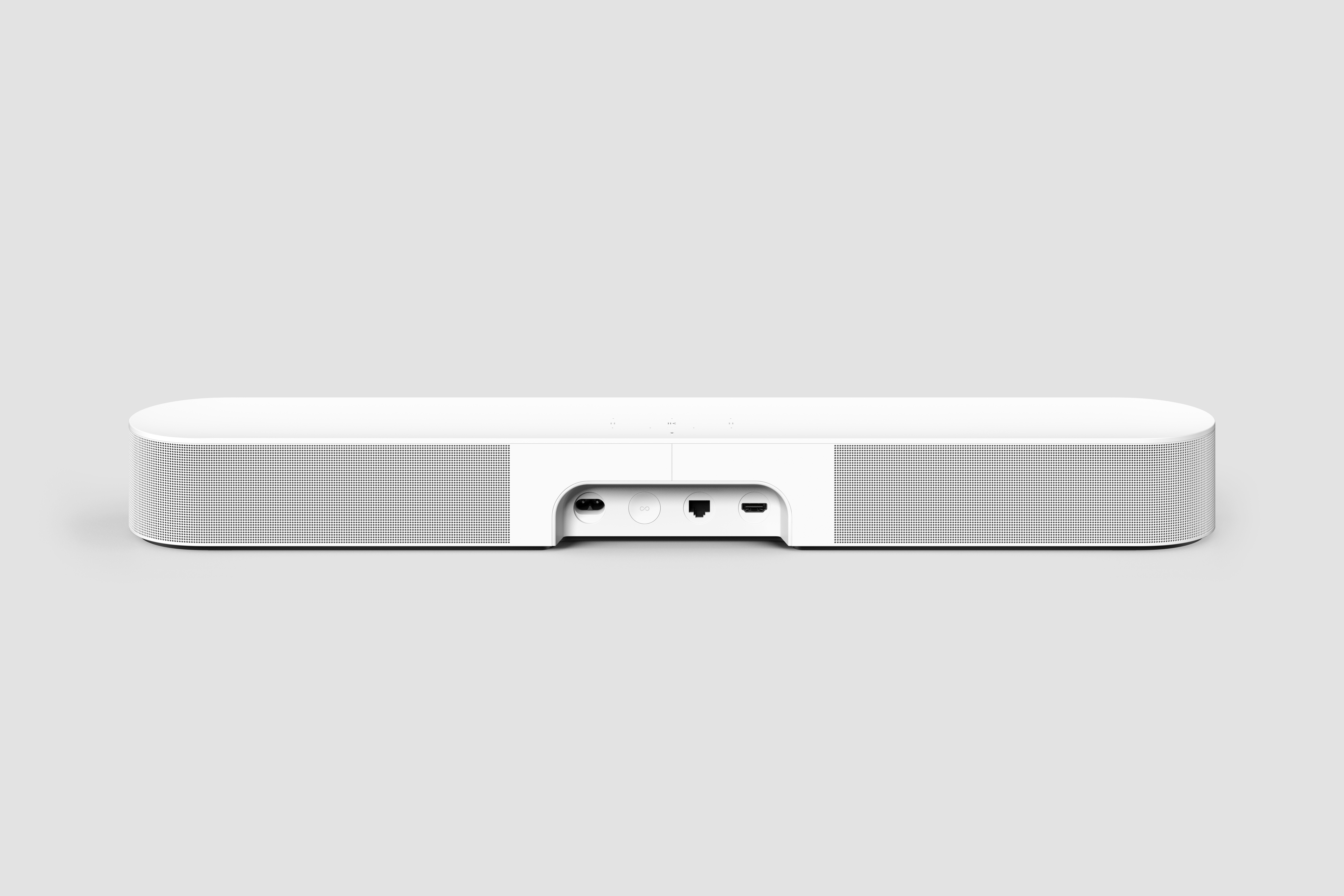
This is where the differences between the two Beam models become more significant. Let’s kick off with Dolby Atmos support – the Beam Gen 2 has it (thanks, in part, to a CPU that’s 40 per cent more powerful), while the original Beam doesn’t. This opens up the door to a more immersive audio experience via the newer Beam.
In addition, the new Beam Gen 2 also lands with eARC (Enhanced Audio Return Channel) connectivity. The main benefit of eARC is its substantial boost in bandwidth and speed compared to that found in regular ARC connections – it means that Dolby Atmos signals can be delivered in the advanced Dolby TrueHD format, rather than the Dolby Digital+ format to which standard ARC is limited.
Truth be told, that’s likely not a huge benefit here, as all streaming services currently deliver Atmos in Dolby Digital+ anyway. Still, if you also use a 4K Blu-ray player, you might appreciate knowing that your soundbar is capable of handling its full-fat Atmos signal. Whether you’ll be able to tell the difference via an affordable device such as this is another matter entirely.
Upgrading to eARC connectivity also means that the Beam Gen 2 has a larger bandwidth and speed allowing it to deliver up to 32 channels of audio, including eight-channel, 24bit/192kHz uncompressed data streams at speeds of up to 38Mbps.
Lovers of HD music will be pleased to know that both models also now support Amazon Music’s Ultra HD audio, while the Gen 2, in addition to its big sibling the Sonos Arc, also now boasts Dolby Atmos Music support. Thanks to a more recent update, the Gen 2 model also supports Apple spatial audio songs through Apple Music via the Sonos app, which is a pretty good bonus for subscribers to Apple's music service.
Elsewhere, other features remain the same, including support for Sonos’ TruePlay room calibration via the Sonos app, which also allows you to adjust treble and bass, and access the Loudness, Night Sound and Speech Enhancement features. Apple AirPlay 2 support remains, too, as well as built-in smart assistants in the form of Amazon Alexa and Google Assistant.
While some people will be disappointed to note that there’s still no HDMI passthrough in the Gen 2, Sonos insists that resisting having multiple HDMI inputs and sticking to a single ARC/eARC connection keeps things as simple as possible, though we suspect that keeping costs down is also probably a factor. This is something that's made our Sonos Beam Gen 3 wishlist.
On the subject of simplicity, the Beam Gen 2 also gains NFC so that you can tap your phone to initialise the wi-fi setup.
**Winner: Sonos Beam Gen 2**
Sonos Beam Gen 2 vs Beam Gen 1: sound
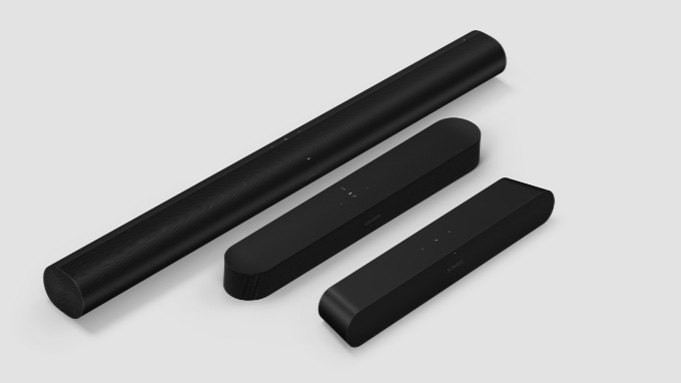
Key to the original Beam's success has been simplicity of design and streamlined functionality that, remarkably for its size, has overcome two of the usual limitations of compact speakers: sonic scale and weight.
Given that the original still blows us away with its sound quality, can the new model, with the added complexity of Dolby Atmos support, achieve extra spaciousness and immersion without having to sacrifice any of the original model’s directness, detail or general musicality?
The new Beam’s internal layout is much the same as its predecessor’s, but the quintet of front-facing drivers are configured into five separate arrays rather than three. When watching Atmos content, two of these arrays are dedicated to reproducing overhead and surround sounds. With its enhanced processor power, the Sonos Beam Gen 2 uses psychoacoustic HRTF (head-related transfer function) technology to give the impression of height without the need for vertical drivers.
So does the new Beam produce compelling height effects and precisely place sounds in three-dimensional space without the use of upward-firing drivers?
Well, genuine overhead sounds are perhaps a stretch too far, but there’s more to Dolby Atmos than aeroplanes and helicopters, and we’re pleased to report that the Beam Gen 2 handles the format better than any similarly priced soundbar.
The Beam Gen 2 provides a more enveloping, spatial soundscape with richer, more detailed audio as well as tangible motion and depth. Atmos aside, it sounds incredible, reaching deeper than the Beam Gen 1 with greater refinement, a warmer treble, and wider dynamic range. Where the Beam Gen 1 might skim over certain complex sounds, the Gen 2 has a greater capacity to take them on, consistently resulting in a richer, more nuanced and varied listening experience.
**Winner: Sonos Beam Gen 2**
Sonos Beam Gen 2 vs Beam Gen 1: verdict
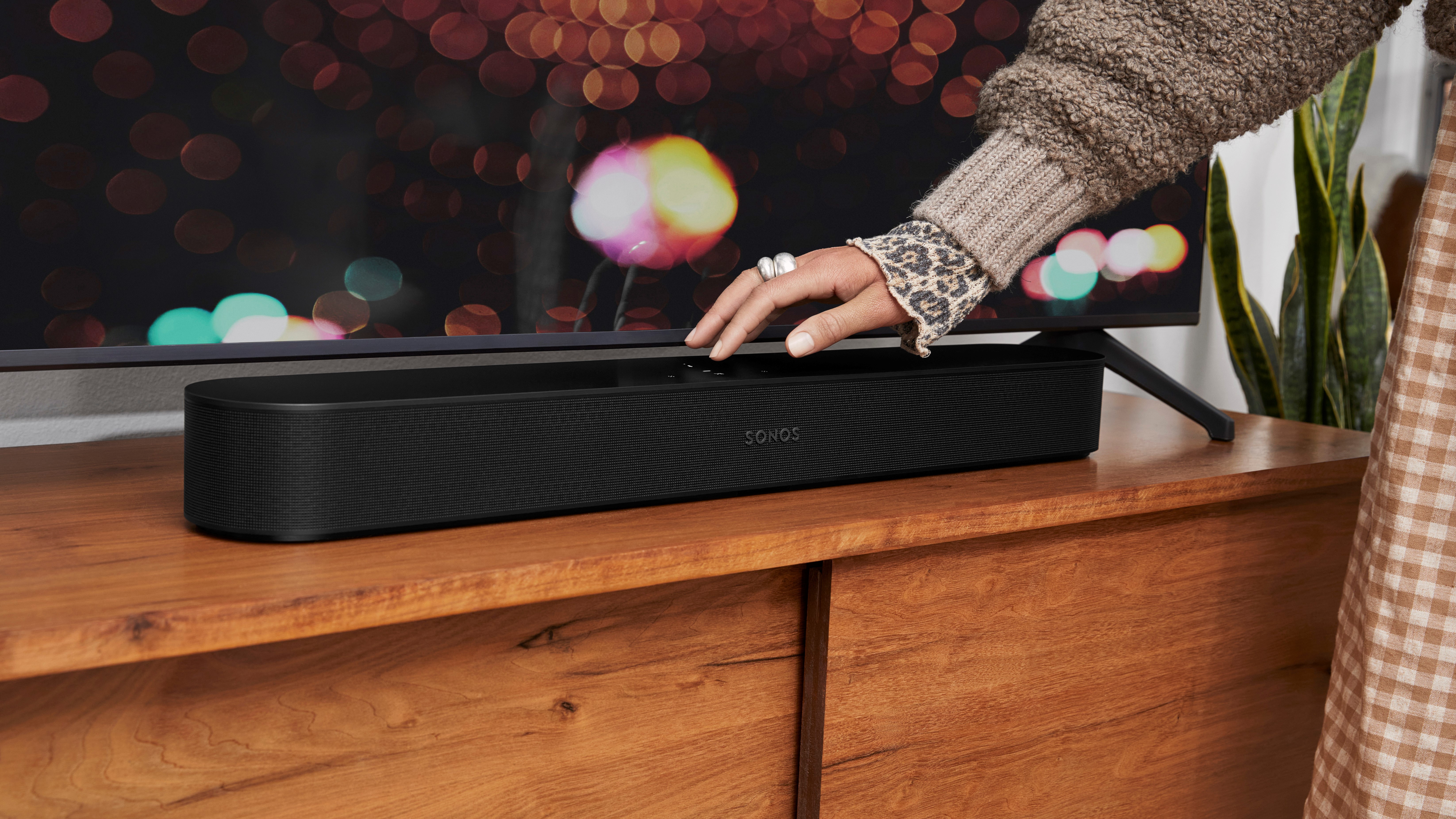
The Award-winning original Sonos Beam consistently fended off all the competition in its price bracket every year from its release. But in 2021 its successor managed to usurp it by cramming more tech and features into the same sleek shell that we’ve come to know and love.
The Beam Gen 2 not only lives up to the high bar set by its predecessor but exceeds it by a margin that more than justifies its new feature set and even its higher cost. The decision by Sonos to use processing power and forward-facing drivers to recreate Dolby Atmos has paid off with capable and effective handling of the format and expert handling of motion, depth and space all from within a classic compact design.
If you're looking to upgrade your original Beam or another budget soundbar, the Beam Gen 2 is a good place to look.
**Overall Winner: Sonos Beam Gen 2**
MORE:
Sonos Beam Gen 3 preview: 4 things we want from the next budget Dolby Atmos soundbar
5 mistakes everyone makes with Sonos' Dolby Atmos soundbars
Get the What Hi-Fi? Newsletter
The latest hi-fi, home cinema and tech news, reviews, buying advice and deals, direct to your inbox.

